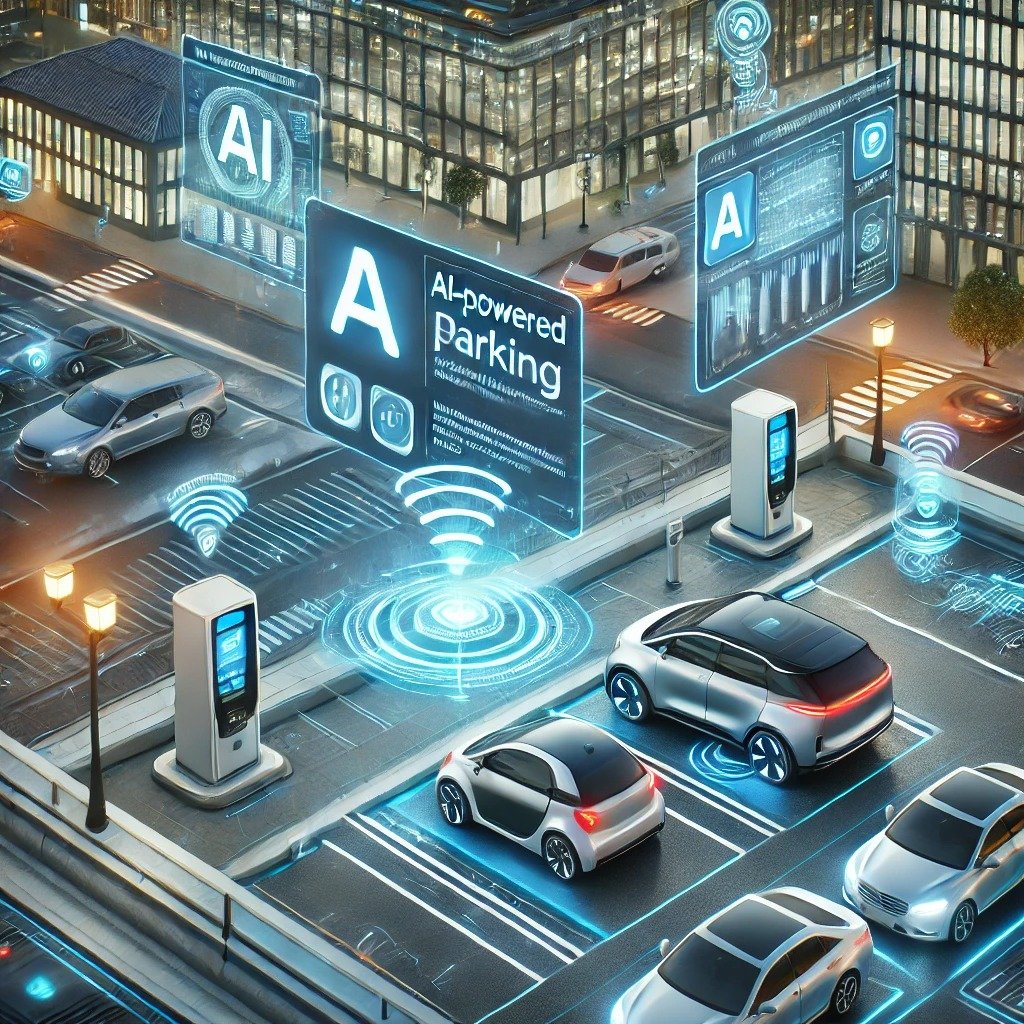AI-Driven Parking Sensors: The Game Changer of Smart Parking Management
Because the city population and traffic are increasing, parking today is the greatest nightmare for one to face. AI-parking sensors are the next-generation technology solution that consists of artificial intelligence, Internet of Things (IoT), and intelligent sensor technology for easy parking. These smart systems not only lead drivers to vacant parking slots within a wink of an eye, but also ease city driving and lower the level of traffic congestion.
This guide describes the functioning of AI-based parking sensors, hardware and software components, important features, practical applications, and trends that transform the business.
LiDAR Sensors: Laser beam emitters, LiDAR scans the world 3D in imaging format, enabling accurate object detection and parking lot mapping.
Radar Sensors: Ambient conditions and weather don’t come in the way of these sensors since they operate optimally in any condition and even identify cars in rainy, foggy, or night time conditions.
Magnetic Sensors: Ground installation cost, magnetic sensors will detect change in Earth’s magnetic field the moment a car is parked above them.
Pressure Sensors: Pipe installed beneath the parking space, pressure sensors are used to detect weight of parked car for occupancy confirmation.
All these sensors feed into an AI-based parking system to provide real-time accurate parking space identification.
2. AI Processing and Data Analysis
If parking information is gathered using sensors, AI processing programs recognize the information in an attempt to achieve real-time parking conditions.
Computer Vision Technology: Picture and video information is watched by AI-powered cameras in an attempt to detect parked vehicles and empty spaces.
Machine Learning Algorithms: With every passing time, experience is built up, and AI becomes more accurate with more predictions as it learns patterns and gains experience.
Edge Computing: Rather than doing all computation in the cloud, devices perform computation locally (smart parking meters or cameras) to give instant feedback.
Cloud-Based AI Systems: These systems save data and calculate it on far-off servers to be able to talk to navigation programs, parking systems, and city databases.
3. Communication and Integration with Smart Systems
AI-based parking sensors are a component of a larger smart city ecosystem based on IoT and wireless technology. This facilitates smooth data exchange and cross-platform compatibility:
Wi-Fi, 5G, LoRaWAN, and NB-IoT Connectivity: Enables smooth communication between mobile apps, cloud servers, and sensors.
Main Features of AI-Based Parking Sensors
AI-based parking systems possess some of the most advanced features that make them effective and simpler to operate:
✔ Real-Time Parking Detection – Is constantly identifying and displaying empty space in real-time.
✔ Automated Parking Guiding – Guides the closest available space to drivers via electronic displays or smart phone applications.
✔ Smart Payment & Ticketing – Compatible with digital wallets, QR, or RFID to support cashless payment.
Applications of AI-Based Parking Sensors in Daily Life
AI-based parking sensors are revolutionizing different industries and urban infrastructures of the world.
1. Smart Cities
Certain cities of the world are adopting AI-based parking systems so as to maximize city mobility as well as push congestion away.
Example: Barcelona, Spain, uses intelligent parking sensors to direct drivers to empty parking spots through an in-built mobile application, minimizing significantly traffic generated by parking searches.
2. Shopping Malls & Airports
Shopping and business centers such as airports and malls utilize AI parking sensors for smooth car movement and automated payment.
Example: San Francisco International Airport uses AI parking sensors for valet parking, minimizing passengers’ inconvenience.
3. Autonomous Cars & Self-Parking
Self-driving vehicles use AI parking sensors to find available spots and park automatically without driver input.
Example: Tesla’s “Summon Mode” features cars parking in empty lots with AI-powered cameras and sensors.
Advantages of AI-Powered Parking Sensors
✔ Reduced Traffic Congestion – Lost time finding parking is minimized, hence less traffic congestion.
✔ Reduced Pollution & Fuel Saving – Idling of vehicles is reduced to a large extent, which means lower fuel consumption and emissions.
✔ Improved Safety & Security – Robbery and theft are eliminated with AI-powered surveillance cameras.
✔ Maximum Space Optimization – AI-powered intelligent monitoring and dynamic pricing optimize utilized space.
✔ Gliding & Hassle-Free Parking – Drivers have easy convenience with auto-guidance and pay.
Future Scope of AI-Powered Parking Technology
The future of AI parking is brighter than ever with emerging technology revolutionizing the industry:
AI-Pilot Parking Drones – AI-based camera drones that sweep and scan parking areas overhead.
Blockchain-Enabled Parking Payments – Safe and open payment solutions with cryptocurrencies.
Artificial intelligence parking sensors are transforming urban, commercial, and parking modes of driving. Machine learning, smart sensors, and real-time connectivity enable them to offer unprecedented convenience, efficiency, and eco-friendliness. With future technology developments, AI-based parking technology will keep changing and urban mobility be even smarter and efficient.
From traffic congestion management to self-parking, AI-based parking sensors are actually shaping the smart city and intelligent transport system.




